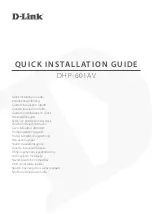
DirectoryEventsProcessedTimeStamp
Contains the time stamp for the corresponding event identified by the
value of the DirectoryEventsProcessed variable.
DNSEventsProcessed
Contains the highest event number in the Windows DNS Server Log that
the adapter has processed. The adapter uses this variable to keep track of
how many events it has read and sent to the event server so that the
adapter can start at the next event the next time it polls the log. You can
lower the DNSEventsProcessed variable if you want an event to be read
and processed again. To process all messages in the DNS Server Log, set
the DNSEventsProcessed variable to
1
.
DNSEventsProcessedTimeStamp
Contains the time stamp for the corresponding event identified by the
value of the DNSEventsProcessed variable.
FileReplicationEventsProcessed
Contains the highest event number in the Windows File Replication service
event log that the adapter has processed. The adapter uses this variable to
keep track of how many File Replication service log events it has read and
sent to the event server so that the adapter can start at the next event the
next time it polls the log. You can lower the
FileReplicationEventsProcessed
variable if you want an event to be read
and processed again. To process all messages in the File Replication service
log, set the FileReplicationEventsProcessed variable to 1.
FileReplicationEventsProcessedTimeStamp
Contains the time stamp for the corresponding event identified by the
value of the FileReplicationEventsProcessed variable.
PollingInterval
The adapter polls the Windows event logs for new events at intervals
when it does not receive any events automatically. The PollingInterval
variable specifies the upper frequency limit, in seconds, to poll the
Windows event logs. The default value is 120 seconds.
Polling begins at 5 seconds. If a new event is detected, the next polling
frequency begins at 5 seconds again. If no event is detected from a poll, the
polling interval is doubled, until the upper limit is reached. After the
upper limit is reached, the polling frequency remains at that interval until
a new event is detected; then, it is reset to 5 seconds.
Note:
If there are buffered events, but no incoming events, the time still
doubles until the set PollingInterval time. To avoid this, set
PollingInterval
to a lower number. The PollingInterval setting is in
the registry in HKEY_LOCAL_MACHINE\SYSTEM\
CurrentControlSet\Services\ TECWinAdapter\
. This is not set by
default and must be added to the registry to alter the default value
of 120 seconds.
SecurityEventsProcessed
Contains the highest event number in the Windows Security Log that the
adapter has processed. The adapter uses this variable to keep track of how
many events it has read and sent to the event server so that the adapter
can start at the next event the next time it polls the log. You can lower the
SecurityEventsProcessed
variable if you want an event to be read and
processed again. To process all messages in the Security Log, set the
SecurityEventsProcessed
variable to
1
.
118
IBM Tivoli Enterprise Console: Adapters Guide
Summary of Contents for Enterprise Console
Page 1: ...IBM Tivoli Enterprise Console Adapters Guide V ersion 3 8 GC32 0668 01...
Page 2: ......
Page 3: ...IBM Tivoli Enterprise Console Adapters Guide V ersion 3 8 GC32 0668 01...
Page 8: ...vi IBM Tivoli Enterprise Console Adapters Guide...
Page 66: ...54 IBM Tivoli Enterprise Console Adapters Guide...
Page 76: ...64 IBM Tivoli Enterprise Console Adapters Guide...
Page 90: ...78 IBM Tivoli Enterprise Console Adapters Guide...
Page 138: ...126 IBM Tivoli Enterprise Console Adapters Guide...
Page 156: ...144 IBM Tivoli Enterprise Console Adapters Guide...
Page 176: ...164 IBM Tivoli Enterprise Console Adapters Guide...
Page 180: ...168 IBM Tivoli Enterprise Console Adapters Guide...
Page 192: ...180 IBM Tivoli Enterprise Console Adapters Guide...
Page 193: ......
Page 194: ...Program Number 5698 TEC Printed in U S A GC32 0668 01...
















































